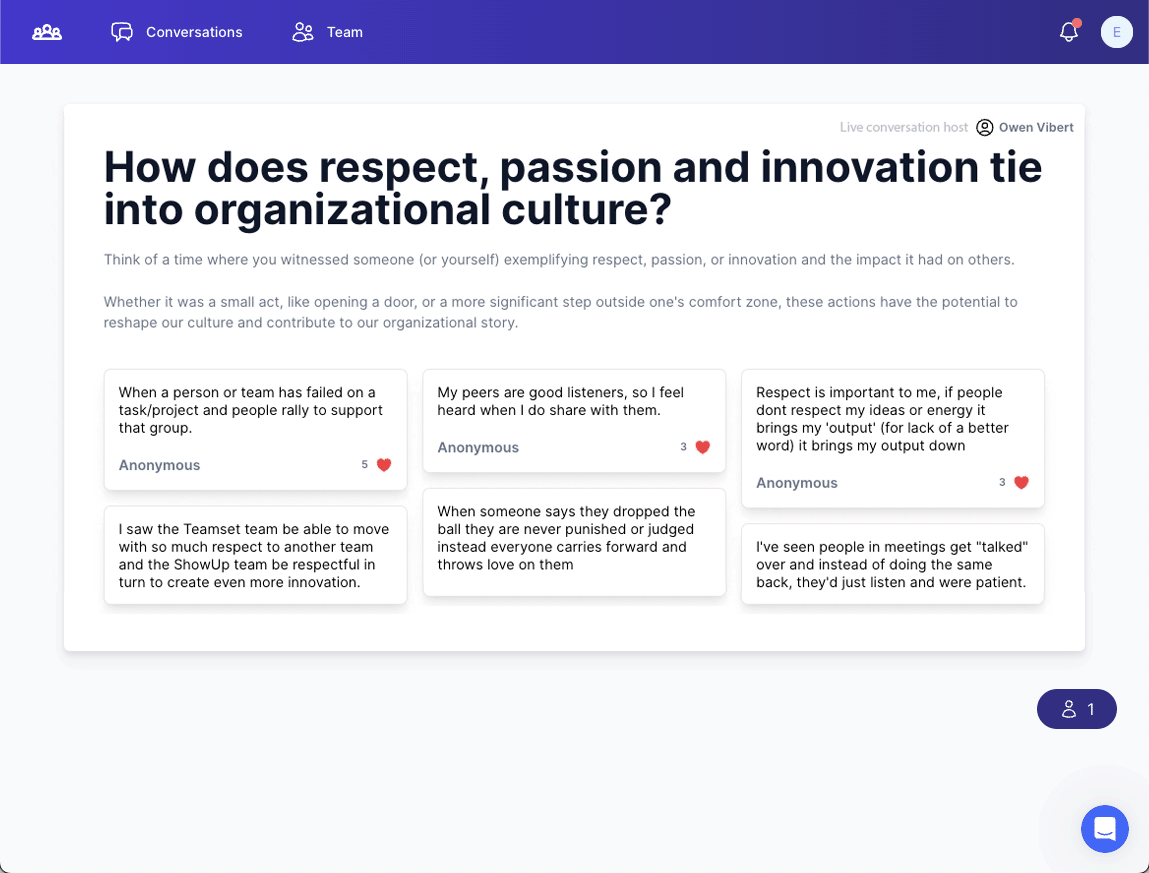Your job is more than just a place to make money. You put time into your work, hoping that at some time, your efforts will make a meaningful impact. To make time at work meaningful, your community at work has to feel right. Organizational psychology has to be a priority and a commitment to the six traits of dynamic company culture.
Key takeaways:
-
- 71% of employees are not engaged in their work.
-
- Bad company culture and organizational psychology are to blame.
-
- Cultivating passion is the only way to re-engage employees.
Workplace culture is a very delicate balancing act. While the culture may work very well for one person, it may not work at all for another. It’s so challenging as a company leader to find that harmony that keeps people engaged, and top talent coming back for more.

Why does organizational psychology matter?
Organizational psychology is more than benefits and perks; it’s all about striking a balance between what is essential to the individual and the company as a whole.
Even though workplaces have more benefits than they’ve ever had, there is still an imbalance at work. In a recent Gallop study, 71% of employees are NOT engaged while they are at work! This lack of engagement is costing a lot. Between lost productivity and revenue and increased leave, employee disengagement is costing $550 billion in the US alone! That is an amazing amount of lost productivity and it proves, companies just can’t throw money at this problem.
Engaged minds are healthy minds, and healthy working cultures support healthy minds.
Company culture can be changed
Because there are so many working parts to company culture, it is crucial to stay focused on the few things that matter. There are six principal traits of a company culture that need to be continuously nurtured to produce an engaged and vibrant company culture; they are:
Trait #1: Alignment

Everyone on a team is not going to agree with each other all of the time. Even the most celebrated sports teams of all time, have had quarrels between two competitive teammates. Provided foundational goals are shared; when egos clash, alignment is what keeps the team together.
For a company culture to thrive, everyone who is a part of it must share the common goal. Even if they do not necessarily share how to execute the goal, when everyone is in alignment with that higher purpose, the byproduct of this energy is trust.
Trait #2: Trust
Having a deep feeling that everyone has your best interest at heart goes a long way in helping you establish trust within a company. As an employee, if you are not trusted, you don’t feel safe to create, take a risk or be you. As an employer, if you are not trusted, then every decision you make is second-guessed.
Being a leader in your organization, you must give trust without any expectation of return. When trust is offered at work and not earned like we were taught, a sense of safety is built, and respect is earned.
Trait #3: Respect
Healthy company culture is one that cultivates strong love and respect among its members. Understanding that respect is not earned but built, there is a sense of ease that emanates from each working relationship. People are free to be themselves when they respect others, and others respect them.
There cannot be any animosity between members of a healthy company culture. Everyone must have a firm understanding of their role in making their team great, and this often requires a lot of faith. Leading with love and universal respect for each of your co-workers means being completely transparent in your intentions.
Trait #4: Transparency
Clarity and timing of your message is key to being transparent among your team. In times of uncertainty, nothing binds a community together more than when leaders deliver an easily understood message at the perfect time.
When everyone in a team relies on respect, trust and alignment they have built with their healthy company culture, they are driven to be transparent. There is no need to hide behind their message or use tactical delays in delivering it. The most beautiful thing about transparency is that it often breeds more trust and respect, on top of opening the door for more creativity and innovation.
Trait #5: Innovation
Innovation is a risk-takers game. To create something new means opening up the possibility of failure because you are challenging the status quo. It takes bravery to be an innovative team, and so, there has to be a level of comfort found in accepting failure as a team within the company culture.
Can you think of a time when you could not find the inspiration to create? Most likely, it came at a time when you were dealing with something else that was throwing you off your game. It’s impossible to rebuild a house in the middle of a hurricane. You feel too unsafe to create. But it may be possible to start building the moment the wind stops if you have the passion for getting started.
Trait #6: Passion
For a fire to ignite, it needs heat, fuel and oxygen. Like fire, to ignite passion, we need three key elements: purpose to get started, talent to get things done and desire to keep it going. When our passion is burning like a raging inferno, we are free to be who we are meant to be, and we find an unstoppable flow to create.
Passion is not found; it’s grown. Many of us are lacking love for our daily work, and we’re disengaged. By cultivating a healthy company culture built on alignment, trust, respect, transparency and innovation, our efforts bear the fruit of passion in everyone who is a part of it. When employees are passionate about their work, they can’t help but be engaged, productive and impactful.
Get help with ShowUp
Learn more about how you can get started on building a company culture of employee engagement by checking out ShowUp.io. ShowUp is a product of Dovico that is passionate about helping clients understand and develop their company culture.
